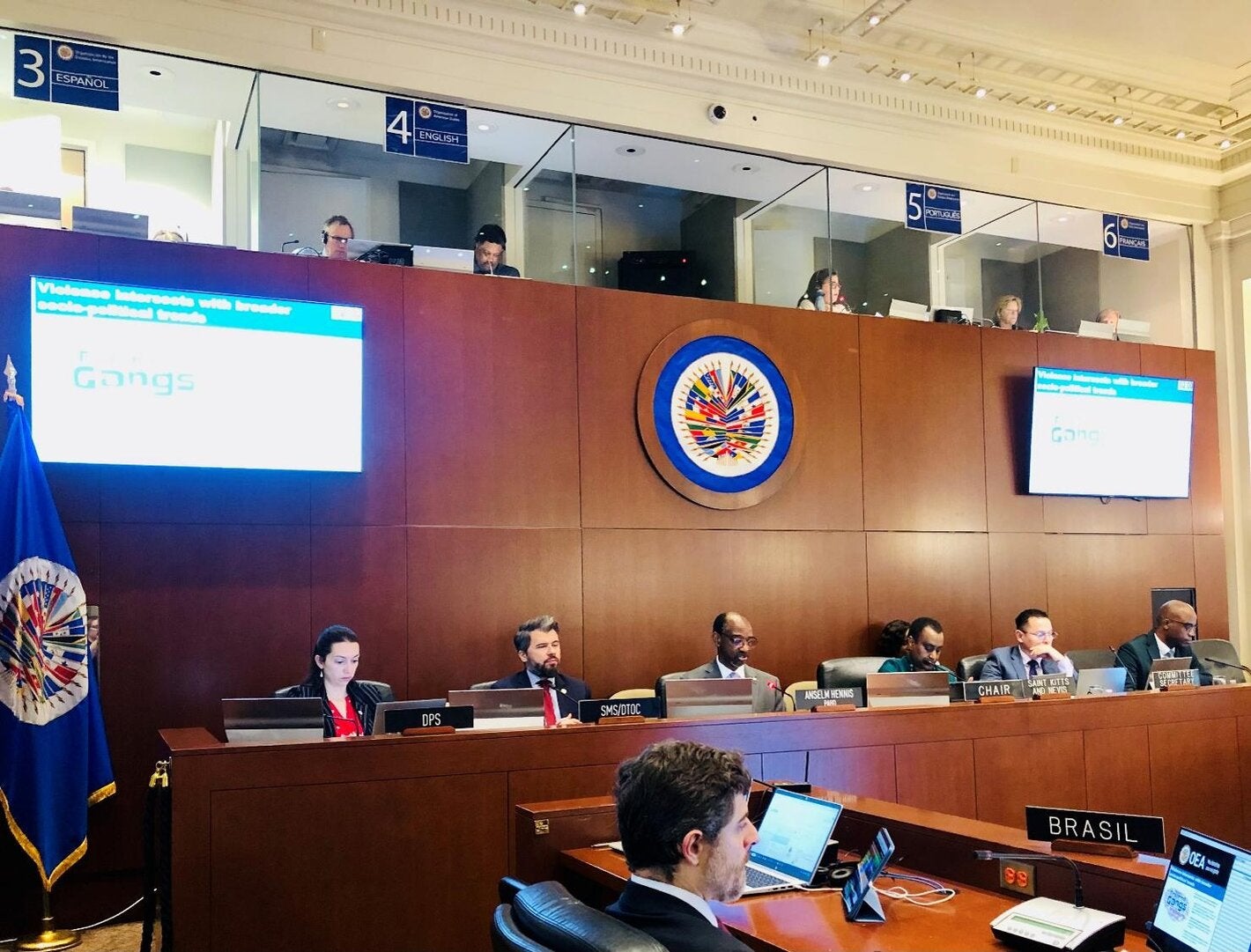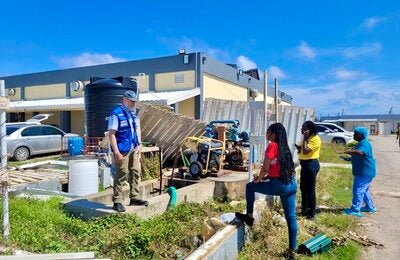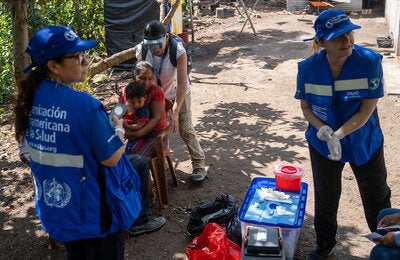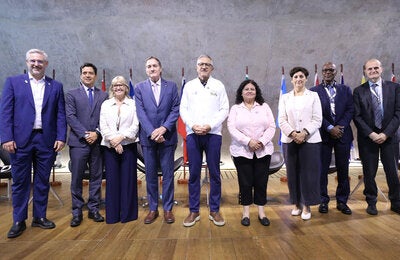
Washington, D.C., 1 May 2025 – The Pan American Health Organization (PAHO) supported the Special Meeting of the Organization of the American States (OAS) Committee of Hemispheric Security to discuss the special security concerns of the small island and low-lying coastal developing states of the Caribbean. The meeting was a unique opportunity for high-level dialogue and strengthening strategic collaboration among OAS Member States, regional institutions, civil society, international development partners, and technical experts.
The Region of the Americas is known for having the highest homicide rate in the world (19.26 per 100,000 in 2021 in the Americas, compared to 6.1 per 100,000), more than three times the global average. Several Caribbean countries fall above this regional average (per 100,000) – such as the Bahamas (44.6), Belize (38.3), Haiti (20.9), Jamaica (51.9), Saint Lucia (20.1), Saint Vincent and the Grenadines (34.6) and Trinidad and Tobago (37.7). The region has also the highest homicide rate for those under 18 (5.8 per 100,000 compared to 1.7 per 100,000 globally), with young men and boys particularly vulnerable. Beyond these impactful numbers, consequences of violence go well beyond death and include injuries, mental and physical ill-health, the adoption of unhealthy behaviours as well as several negative socioeconomic outcomes. Homicide intersects with other forms of violence across the life course, including witnessing violence in the home, corporal punishment, bullying and physical fights.
In response to the escalating levels of violence, the Caribbean Community’s (CARICOM) has adopted a transformative approach. CARICOM Heads of Government have declared crime and violence as public health issues and have committed to incorporating evidence-based strategies that address the root causes of violence through multi-sectoral coordination.
PAHO helped to conceptualize the Special Meeting, drawing on its long history of advocating for a public health approach to violence. In its presentation, PAHO outlined the added value of a public health approach to violence, drawing on existing frameworks and tools, such as the INSPIRE and RESPECT frameworks, as well as country examples from across the Region.
“A public health approach helps us to focus on what works, on the interventions that are supported by evidence, and are more likely to offer a high return on investment and result in positive outcomes for our communities”, stressed Dr Anselm Hennis, Director, Department of Noncommunicable Diseases and Mental Health, PAHO. Early identification of at-risk groups using health services, strengthened access to mental health services for children and at-risk adolescents, training frontline staff, as well as using injury data to identify hot spots for violence and fine-tuning interventions, are examples of evidence-based interventions that were discussed.
The Special meeting was chaired by H.E. Ambassador, Jacinth Henry-Martin, Permanent Representative of Saint Kitts and Nevis to the OAS and Chair of the Committee on Hemispheric Security. Dr. the Honourable Ralph E. Gonsalves, Prime Minister of Saint Vincent and the Grenadines and Chair gave the keynote speech. Other speakers included representatives of the Caribbean Public Health Research Agency (CARPHA), the Interamerican Development Bank (IDB), CARICOM IMPACS as well as selected experts from Belize, Guyana, Jamaica, and Saint Kitts and Nevis. The Special meeting was a critical step as countries move towards a subregional framework to guide Small Island and Low-Lying Coastal Developing States in addressing crime and violence using a public health approach. The Special meeting benefited from active discussions between OAS Member States, with many taking the floor to share their experiences and stressing the value of subregional and regional dialogue on this topic.
PAHO is a member of the CARICOM Technical Working Group with a remit to develop a logic model that would address crime and violence as a public health issue and is committed to collaborating with countries and partners to advance this important topic in the Region of the Americas.
For more information:



